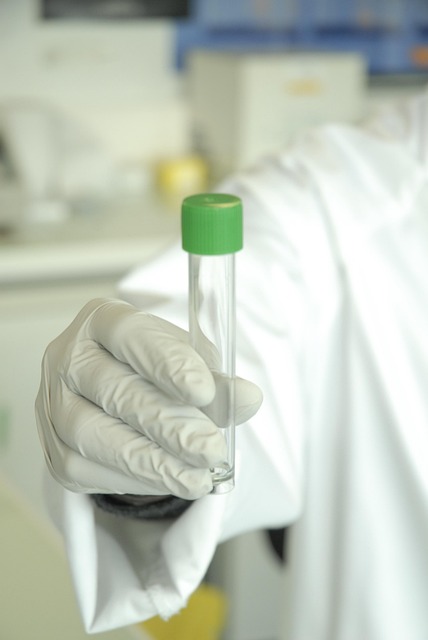NAD+ therapy boosts cellular health by increasing nicotinamide adenine dinucleotide (NAD+) levels, crucial for energy production, DNA repair, and immune cell activity. This approach enhances DNA regeneration, improves immune system performance, and reduces age-related diseases' risk. Safe with minimal side effects, NAD+ therapy is being explored for its potential in combating infections, age-related decline, and integrating into mainstream healthcare practices through ongoing research focused on DNA regeneration with NAD therapy.
“Unleash your body’s innate defense system with NAD+ therapy—a game-changer in immune system support. This powerful molecule plays a pivotal role in cellular health and energy production. In this comprehensive guide, we explore how NAD+ therapy stimulates DNA repair, fortifies the immune response, and combats age-related immunoactivity. From understanding its biological function to deciphering potential side effects, get ready to delve into the future of immune system optimization through cutting-edge DNA regeneration techniques.”
Understanding NAD+ and Its Role in Immune System Function
NAD+, or nicotinamide adenine dinucleotide, is a coenzyme found in all living cells that plays a crucial role in various metabolic processes, including DNA regeneration. It acts as a key player in energy production by facilitating the conversion of nutrients into adenosine triphosphate (ATP), the body’s primary energy currency. Beyond its metabolic functions, NAD+ has emerged as a critical modulator of immune system health and cellular defense mechanisms.
The immune system heavily relies on NAD+ to maintain optimal function. It helps regulate the activity of immune cells, such as macrophages and T-cells, ensuring they respond effectively to foreign invaders. Studies suggest that NAD+ levels can influence the production of cytokines, which are signaling molecules that orchestrate immune responses. Additionally, NAD+ supports DNA regeneration by participating in repair processes, helping to maintain genetic integrity. This is particularly important for immune cells, as their rapid turnover rate increases the risk of DNA damage and mutations, potentially leading to compromised immune function.
The Impact of NAD+ Therapy on Cellular Health and DNA Repair
NAD+ therapy has been shown to significantly enhance cellular health and promote DNA repair mechanisms. By increasing the levels of nicotinamide adenine dinucleotide (NAD+), a coenzyme essential for numerous cellular processes, this therapeutic approach supports the restoration and maintenance of cellular function. NAD+ plays a crucial role in energy production, DNA repair, and cellular communication, all of which are vital for maintaining optimal immune system performance.
The impact of NAD+ therapy on DNA regeneration is particularly noteworthy. It helps to alleviate oxidative stress, a major contributor to DNA damage, by enhancing the activity of sirtuins—a class of proteins known for their role in protecting DNA and promoting cellular longevity. Furthermore, NAD+ therapy stimulates the production of key repair enzymes, facilitating the correction of damaged DNA strands and preventing cellular mutations. This process is essential not only for supporting immune cells but also for maintaining overall tissue health and reducing the risk of age-related diseases.
Boosting Immune Response and Protecting Against Age-Related Immune Decline
The immune system, our body’s first line of defense against pathogens and foreign invaders, relies on optimal cellular function for effective protection. One of the key ways NAD+ therapy supports the immune response is by facilitating DNA regeneration. Nicotinamide adenine dinucleotide (NAD+) serves as a coenzyme in numerous cellular processes, including DNA repair mechanisms. As cells age or become damaged, their ability to regenerate and maintain healthy DNA can diminish. Boosting NAD+ levels through therapy can help reverse this decline, ensuring the immune system has the tools it needs to recognize and combat threats efficiently.
Age-related immune decline, characterized by reduced immunity and increased susceptibility to infections, is a natural part of the aging process. However, research suggests that NAD+ therapy may play a significant role in mitigating these effects. By promoting DNA regeneration and maintaining cellular health, this therapy could potentially slow down age-related immunological changes, leading to better immune function and protection against various diseases. This approach holds promise for individuals seeking to enhance their natural defenses and support overall well-being as they age.
Safety, Potential Side Effects, and Future Research Directions
NAD+ therapy is generally considered safe, with minimal potential side effects. The most commonly reported include mild gastrointestinal discomfort and skin rash. However, as with any therapeutic intervention, individual responses may vary, and it’s crucial to consult a healthcare provider before starting NAD+ therapy.
Future research directions for NAD+ therapy are promising, focusing on its role in DNA regeneration and cellular defense mechanisms. Understanding the underlying mechanisms of action could lead to more targeted applications and optimal dosing protocols. Additionally, exploring NAD+’s potential in combatting age-related diseases and enhancing overall immune system resilience is an exciting area of investigation. Ongoing studies aim to uncover the full extent of NAD+ therapy’s benefits, paving the way for its integration into mainstream healthcare practices.
NAD+ therapy presents a promising approach for enhancing immune system support and cellular defense. By understanding its role in maintaining optimal cellular health and DNA repair, we can appreciate the potential of this treatment to boost immune responses and mitigate age-related immune decline. As research continues, exploring the long-term effects and refining delivery methods, NAD+ therapy could revolutionize immune support, offering a glimpse into a future where DNA regeneration and overall cellular wellness are more accessible than ever.
